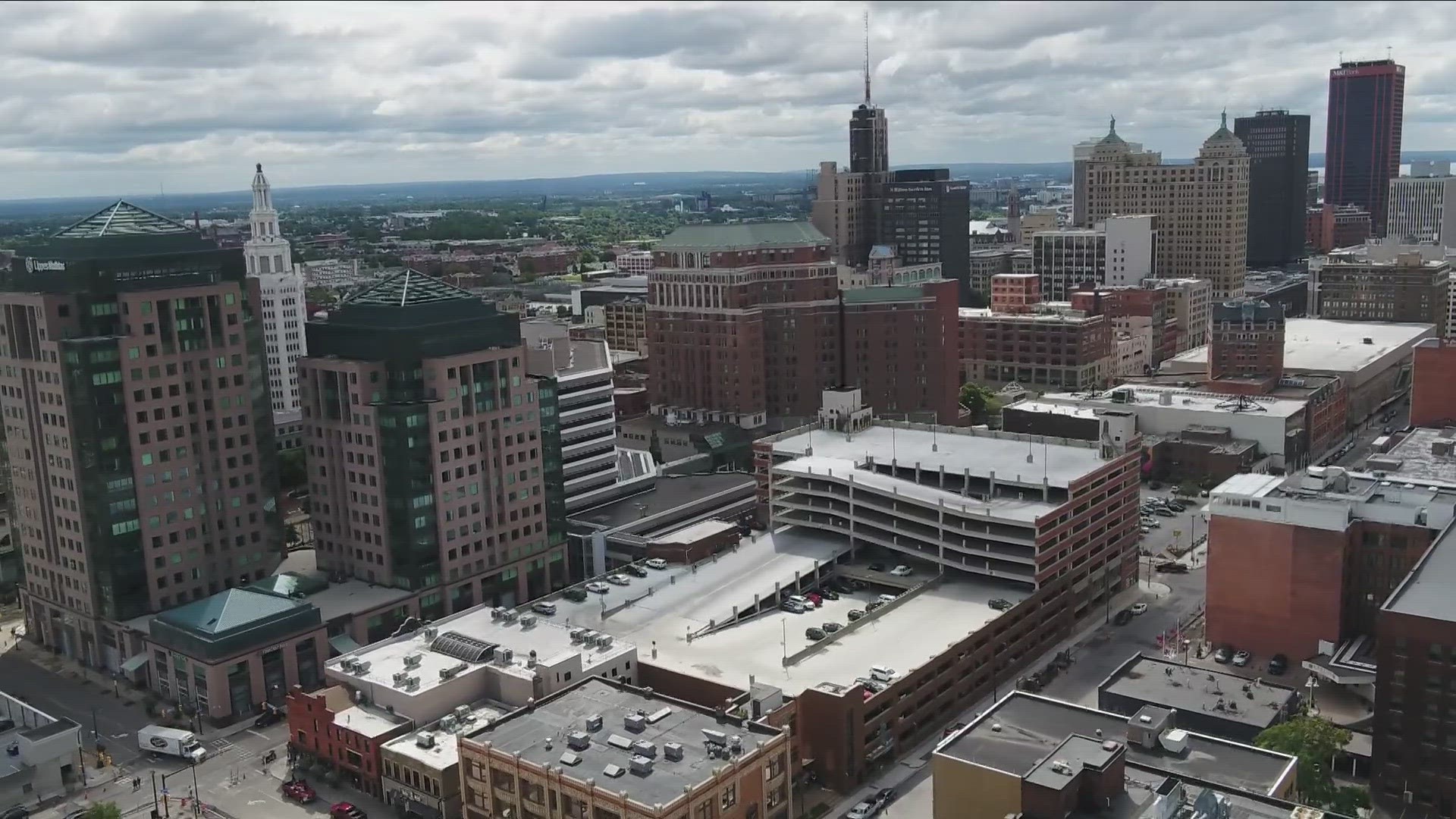BUFFALO, N.Y. — In the wake of COVID some companies have started to look at downsizing, though fortunately not their workforces, but definitely their physical footprint with the work place.
Some recent examples have some people in high places taking notice.
The news earlier this week that Highmark Blue Cross Blue Shield executives were shifting their offices from their Genesee Street site with a relatively new building from 2007, over to the Seneca One Tower, did generate some concern, for example, someone who sits in the 16th floor of the Rath Building.
Erie County Executive Mark Poloncarz pointed out: "They're moving from 400,000 square feet to a little less than 200,000 square feet, and that's not a good trend. Some concern for us as we're seeing what's happening in similar cities across the U.S. and the impact it's having there."
Indeed, as companies find their employees post-COVID more interested in working from home with enhanced technology, or only coming in to the physical workplace for a couple of days a week or even one day a week, the workspace footprints can shrink.
More landlords are apparently concerned, just like some government officials, who cherish vibrant downtowns along a Main Street corridor.
Poloncarz said: "Landlords are concerned, and it's a legitimate concern because most of them have mortgages and debt on the property that's dependent on the rent that's coming in. So if they're not getting as much rent because they're not renting as much space, they could theoretically be in default, and then you have some very valuable properties that theoretically could be foreclosed."
And there's a potential impact of government and taxpayers.
"They could come back and say the building's not worth as much as what it's assessed for so you got to reassess it with a lower value," Poloncarz said.
Other downtown business observers keep watch on what some call "ghost real estate" office space, for which the leases have not yet expired and it's not clear they will seek to renew.
Dottie Gallagher, president of the Buffalo Niagara Partnership, told 2 On Your Side: "I think we're going to see a lot of shifting, a lot of shrinking of employers' sort of footprints in office environments, which is not yet a Buffalo problem. That's happening all over the country. How that all shakes out, we won't know for sure."
And then also this perspective from a prominent commercial property broker, Jim Milltello of J.R. Militello Inc. brokerage: "It's just beginning to be realized and accepted by a broader base of the marketplace. This is, I'm going to call it, a permanent trend in the economy so people have to adjust to that."
Ironically too, Buffalo has been viewed as a "back office" well connected town for some companies who had accountants and other support staff here with lower costs in our downtown buildings than big cities. Perhaps more of those workers will be staying at home more-so as well with some of the buildings, business parks and complexes affected in the future.

